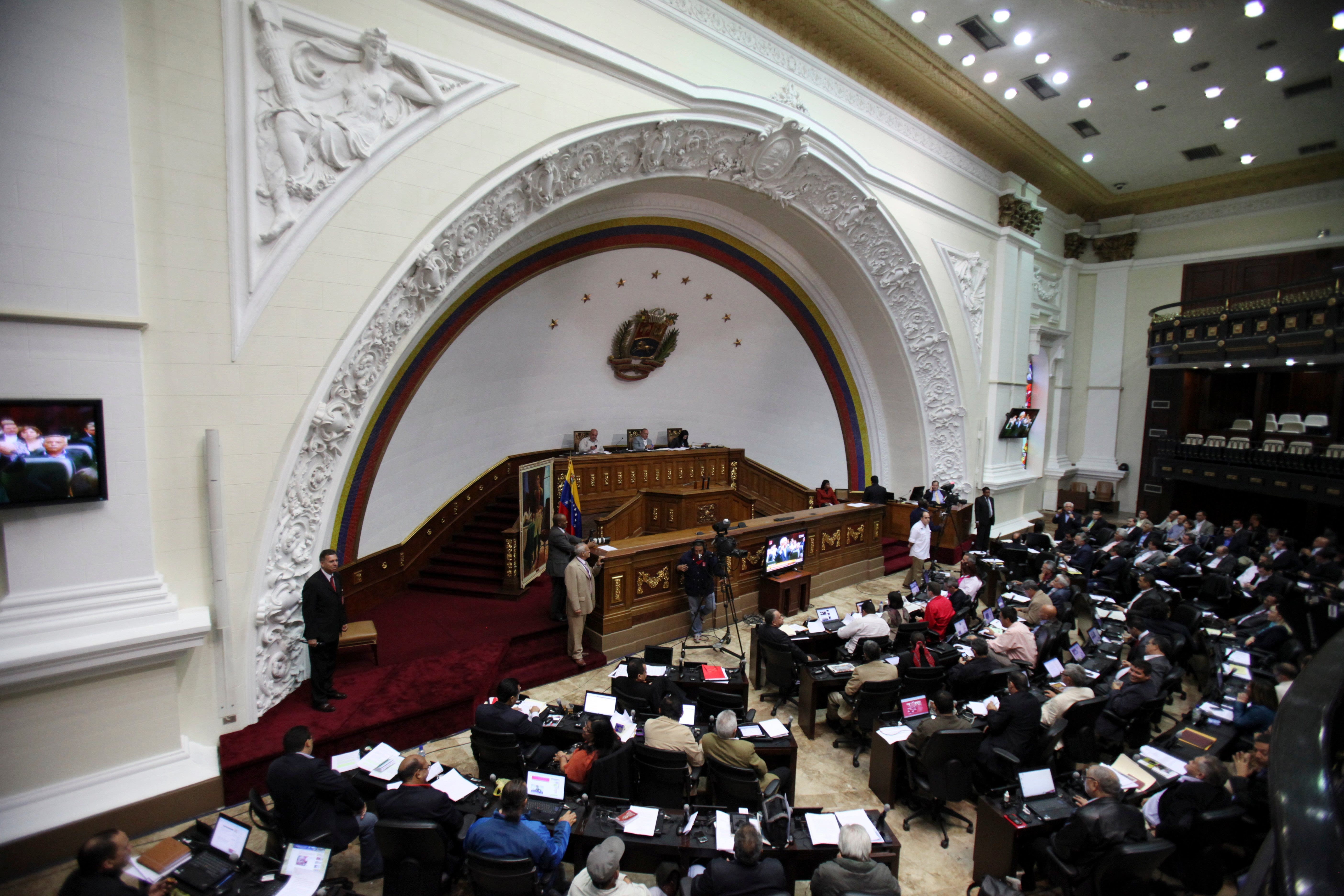Chavez Inauguration Postponed: Venezuela President's Swearing-In Delayed
CARACAS, Venezuela -- Venezuela's opposition announced on
Wednesday that it plans to ask the Supreme Court to rule on whether
delaying the swearing-in of cancer-stricken President Hugo Chavez
violates the constitution. Opposition leader Ramon Guillermo Aveledo said the opposition
coalition will ask the court for an opinion on Congress's decision to
postpone Chavez's inauguration for a new term, which had been scheduled
for Thursday.
The constitutional debate takes place against a backdrop of
charges that the government isn't giving complete information about the
health of Chavez, who underwent his fourth cancer-related surgery in
Cuba last month and hasn't spoken publicly in a month.
"It's very evident that he isn't governing, and what they want us to
believe is that he's governing, and they're lying," Aveledo told the
Venezuelan television channel Globovision. He insisted on the
opposition's stance that the National Assembly president should take
over temporarily as interim leader and that the Supreme Court should
appoint a panel of doctors to determine Chavez's condition and whether
he is fit to remain in office.
Aveledo didn't say when or how the opposition would bring its challenge.
The National Assembly, which is dominated by Chavez's allies, voted
on Tuesday to let Chavez be sworn in at a later date before the Supreme
Court. Government officials say the constitution allows the court to
swear in a new president and argue that clause does not specify a date.
It is unclear what the opposition could do, beyond seeking a court
decision, to challenge the plan.
Vice President Nicolas Maduro broke the news that Chavez would not be
able to attend the scheduled inauguration in a letter to National
Assembly President Diosdado Cabello.
The news sparked passionate debate in the assembly, with the
opposition coalition arguing that if he is not sworn in on Thursday,
Chavez must temporarily step aside and let the head of the National
Assembly, Cabello, assume the presidency. Aveledo also wrote to the
Organization of American States explaining their concerns, but other
opposition leaders say there no plans for protests on inauguration day.
"What I won't do is put people to fight against people," opposition
leader Henrique Capriles told reporters. "Our country doesn't need hate.
Our country doesn't need fights."
At
the heart of the dispute are differing interpretations of Venezuela's
constitution. It says the oath of office should be taken before
lawmakers in the National Assembly on Jan. 10, this Thursday. But the
charter adds that if he is unable to be sworn in by the National
Assembly, the president may take the oath before the Supreme Court.
Opponents argue that even if the oath is taken before the Supreme
Court it should be on Jan. 10. Chavez's allies argue that the charter
doesn't explicitly specify on what day it must take place.
While leaders of both the pro- and anti-Chavez camps say they don't
expect violence to break out Thursday, the dispute could give the
opposition grounds to question the legitimacy of government officials
serving past the scheduled inauguration date.
Capriles said earlier Tuesday that Chavez's current term
constitutionally ends Thursday and that the Supreme Court should rule in
the matter.
"There is no monarchy here, and we aren't in Cuba," he said.
The Supreme Court on Tuesday rejected one legal challenge brought by
an individual lawyer, Otoniel Pautt Andrade, who had argued that it
would violate the constitution for Cabello to refuse to assume the
presidency provisionally if Chavez were unfit to be sworn in on the set
date. The ruling didn't provide a detailed interpretation of the
constitution.
In the debate set off by the announcement that Chavez would not
return from Cuba for the inauguration, opposition lawmaker Omar Barboza
urged Chavez's allies to accept Cabello as interim president while
Chavez recovers, saying that this was to avoid an "institutional
crisis."
Barboza said that a "temporary absence" should be declared, which
would give the president 90 days to recover, and which could be renewed
for another 90 days.
Some lawmakers called for a medical team to be formed to determine
the state of Chavez's health. Some also questioned why the letter
announcing the decision was signed by the vice president rather than
Chavez himself.
"Who's governing Venezuela? In Venezuela, Havana is governing, and
that's the problem we have," opposition congressman Julio Borges said
during the debate.
Maduro has called the swearing-in a "formality" and said the
opposition is erroneously interpreting the constitution. Chavez has said
that if he's unable to continue on as president, Maduro should take his
place and run in an election to replace him.
As he announced lawmakers' approval, Cabello said: "President Chavez,
this honorable assembly grants you all the time you need to tend to
your illness."
Jorge Rodriguez, a Caracas district mayor and campaign manager in
recent elections, accused the opposition of fomenting a "conspiracy"
against Chavez's government. He insisted that Chavez remains president
despite his health problems and pointed out that the National Assembly
had granted the president permission to travel to Cuba for his
operation.
Constitutional law expert Henrique Sanchez Falcon, a professor at
Central University of Venezuela, said the government's position "is
absolutely contrary to what's established under the constitution, which
says that the term lasts six years."
The government said on Monday that Chavez was in a "stable situation"
receiving treatment due to a severe respiratory infection. The
government says he's coping with "respiratory deficiency," but hasn't
said how severe it is.
Capriles urged Latin American leaders not to come to Venezuela,
asking them to instead demand that the Venezuelan Constitution be
upheld.
The governments of Bolivian President Evo Morales and Uruguayan
President Jose Mujica announced that they would travel to Caracas, where
the Venezuelan government said various Latin American leaders were
expected to attend a gathering on Thursday.







